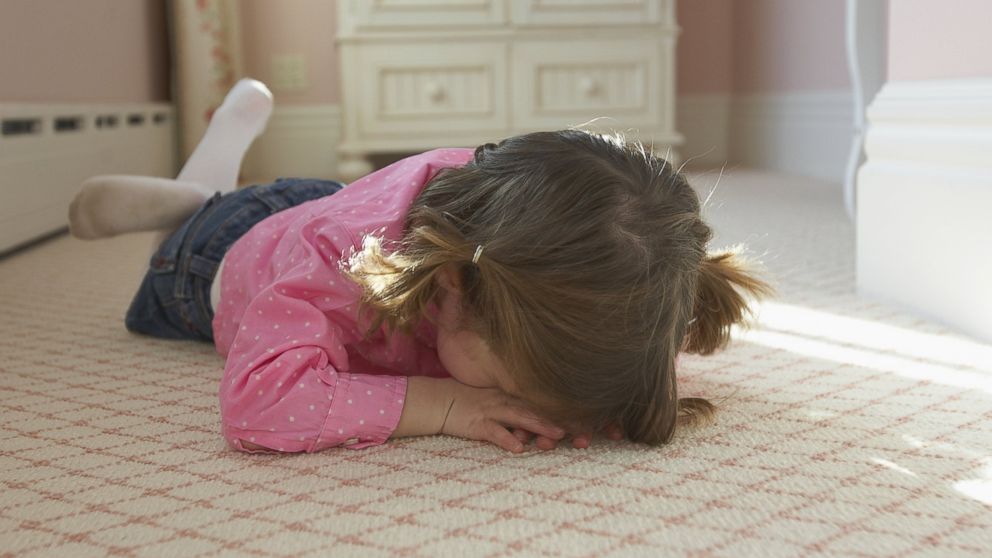Why 3 Is the New Terrible 2
Turns out the terrible twos are a myth. Threes, on the other hand ...

April 3, 2014 — -- Society in general and moms-to-be in particular are well aware of the legendary "terrible twos."
But every 2-year-old I know, including my own daughter, is quite lovely. Sure, they have their moments. But the ones I observe -- and I observe many in various play dates, groups and classes -- are, by and large, affectionate, cooperative and perfectly charming.
I started to think the terrible twos might be a myth. And then I remembered something my sister-in-law said to me about my now-11-year-old-niece when she was young: "It should be called the terrible threes."
I'd forgotten all about that ominous warning until recently, when pieces written by moms of 3-year-olds started popping up faster than crushed crackers in your couch. These moms think their 3-year-olds are, to put it diplomatically, quite difficult.
WATCH: 4 Crazy Ways Moms Cash In on Their Kids
READ: iPad Baby Seat: Bad Parenting or Sign of the Times?
Take the piece by Sarah Fadar, "3-Year-Olds Are A******s." She writes, "My daughter is 3. No matter what I tell her to do, she does not f****** care."
Apparently, Fadar's son was the same at that age. She's not alone.
"The good news about 3-year-olds being a******s," wrote Somer Sherwood in a piece called, What the Parenting Books Don't Tell You: 3-Year-Olds Are Jerks, "is you should not feel like a terrible parent or be embarrassed because your 3-year-old is acting like a 3-year-old in public."
The popular parenting blog ScaryMommy.com outlined the many ways "3-year-olds are the same as a****** bosses."
"There's a word for this in psychology," said Dr. Alan E. Kazdin, professor of psychology and child psychiatry at Yale University. "Normal."
Kazdin, who is also director of Yale's Parenting Center and Child Conduct Clinic, said despite what parents-to-be often hear about the terrible twos, they just don't exist. Not now, not ever.
What happens, he said, is parents go from lugging around a child that is largely free of will to parenting a 3-year-old that has preferences, tastes and a forming personality -- and might even be in some pain because of bone growth. The child grows and changes, but the parents' expectations stay the same.
"A child can't put a label on the parents, but the parents put one on the child," he said.
Hence, parents might use words like a****** and jerk to describe a child.
Fortunately for parents with kids under 3, unlike teething, this so-called difficult stage isn't a given.
"Much of this has to do with the temperament of the child as well as the parenting style of the parent," Kazdin said.
And even if the terrible threes do rear their ugly head, there are plenty of techniques to keep the peace. One way, he said, if offering the child a choice. Take the getting-ready-to-leave-the-house scenario.
"Instead of saying, 'Get your coat on, we're leaving,' with finger pointed, ask the child if she wants to wear the red coat or the green sweater," Kazdin said. "The perception of choice is just as effective as actual choice."
Using directives with a 3-year-old, he said, is completely ineffective, much as they are with most adults.
He added that our adult brains are hardwired towards a negativity bias. In other words, bad things tend to stand out far more than good. So while a child might be perfectly well-behaved for a good length of time, it's the moments when they act up that stick out in their parents' minds.
Parents should praise the child's behavior in those moments of calm, Kazdin said. A few weeks of using such techniques, he said, builds compliance.
But, above all, he said, "Don't blame the children."
It's probably not a great idea to name-call, either.




